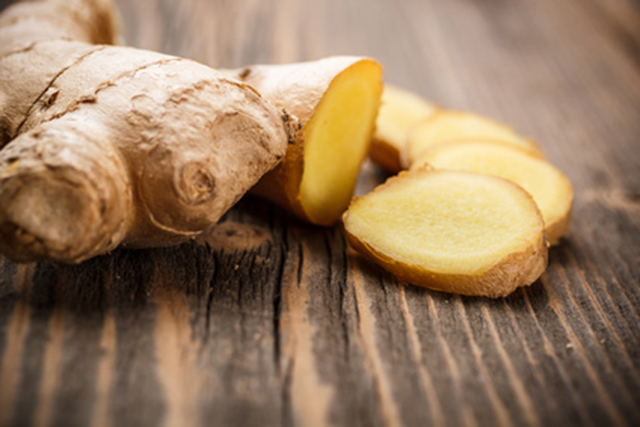Ginger is revered for its many medicinal benefits. It came from Southeast Asia, from where it was traded around the world. It is often added to soups, sauces, and stir-fried vegetables to add a nice spicy kick. Ginger is also often used to make a tea.
There are so many reasons to eat ginger.
“Ginger is one spice that I recommend keeping on hand in your kitchen at all times,” says Dr. Joseph Mercola, one of America’s leading physicians and health experts. “Not only is it a wonderful addition to your cooking (especially paired with garlic) but it also has enough medicinal properties to fill several books,” he adds.
While there is always potential for side effects with any food, ginger is considered very safe when compared to conventional medications.
“There are over 2100 published studies on the medicinal properties of ginger in the scientific literature … it has value in over 170 different health conditions, and has over 50 different beneficial physiological effects,” says Sayer Ji, founder of Green Med Info.
What are some of the many reasons to eat ginger?
• Selectively kills breast cancer cells
• May suppress colorectal cancer growth
• More effective for motion sickness than leading over the counter medication
• Improves glycemic markers on type 2 diabetes patients
• Reduces vomiting and nausea in pregnant women
• May inhibit ovarian cancer cell growth
• Potent anti-inflammatory properties that may rival NSAIDs
• Helps empty stomach contents without side effects
TIP: One of the easiest ways to add ginger to the diet is by making it into a tea. Simply steep a 1-inch piece of organic ginger in a cup of hot water for 5 minutes, and enjoy.
Note: None of the information in our website is intended to diagnose, treat, cure or prevent any illness or disease. The content on our website is for educational purposes only.
For the health benefits of ginger.
For a homemade ginger ale recipe.
REFERENCES:
1. “Ginger: The Enemy of Type 2 Diabetes.” GreenMedInfo.com. GreenMedInfo.com, 25 Mar. 2015. Web. 28 Mar. 2015.
2. “The Effect of Ginger (Zingiber Officinale) on Glycemic Markers in Patients with Type 2 Diabetes.” National Center for Biotechnology Information. U.S. National Library of Medicine, 10 Feb. 2015. Web. 28 Mar. 2015.
3. “Ginger Inhibits Cell Growth and Modulates Angiogenic Factors in Ovarian Cancer Cells.” BMC Complementary and Alternative Medicine. BioMed Central, 20 Dec. 2007. Web. 28 Mar. 2015.
4. “[6]-Gingerol Suppresses Colon Cancer Growth by Targeting Leukotriene A4 Hydrolase.” National Center for Biotechnology Information. Cancer Research, 1 July 2010. Web. 28 Mar. 2015.
5. “The Anti-motion Sickness Mechanism of Ginger. A Comparative Study with Placebo and Dimenhydrinate.” National Center for Biotechnology Information. U.S. National Library of Medicine, Sept.-Oct. 1989. Web. 28 Mar. 2015.
6. “Ginger for Nausea and Vomiting in Pregnancy: Randomized, Double-masked, Placebo-controlled Trial.” National Center for Biotechnology Information. U.S. National Library of Medicine, Apr. 2001. Web. 28 Mar. 2015.
7. “What Is Ginger Good For?” Mercola.com. Mercola.com, n.d. Web. 28 Mar. 2015.
8. “Influence of Ginger and Cinnamon Intake on Inflammation and Muscle Soreness Endued by Exercise in Iranian Female Athletes.” National Center for Biotechnology Information. U.S. National Library of Medicine, Apr. 2013. Web. 28 Mar. 2015.
9. “Ginger’s Many Evidence-Based Health Benefits Revealed.” Mercola.com. Mercola.com, 30 June 2014. Web. 28 Mar. 2015.
10. “Effect of Ginger on Gastric Motility and Symptoms of Functional Dyspepsia.” World Journal of Gastroenterology : WJG. Baishideng Publishing Group Co., Limited, 7 Jan. 2011. Web. 28 Mar. 2015.


















Pingback: Best nature's flu shot remedy - Step Into My Green World | STEPin2